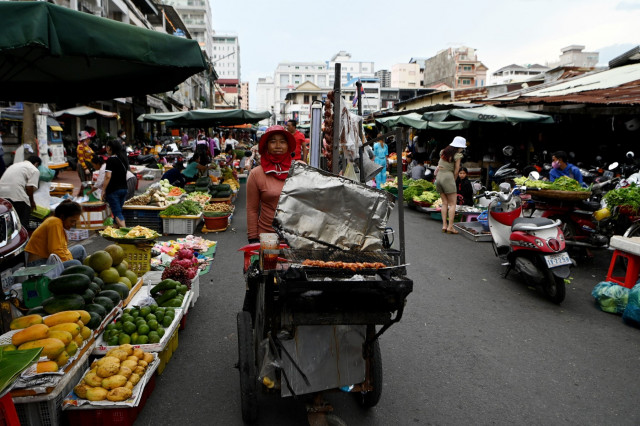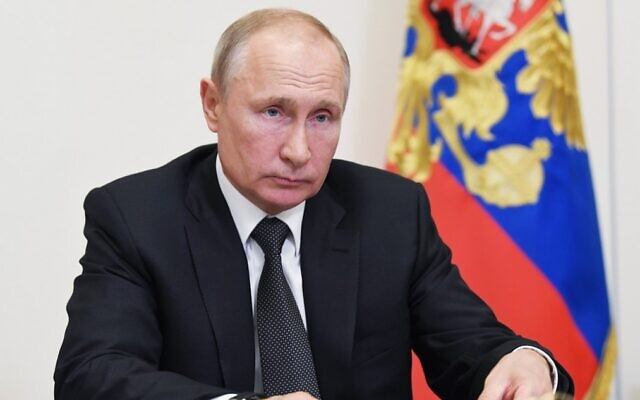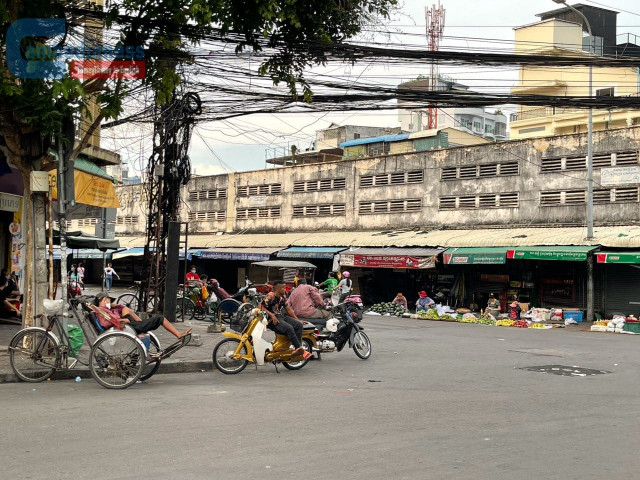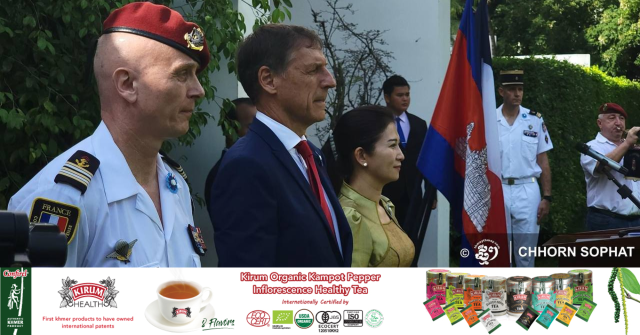Social Aid Scheme is Not a Votes Ploy: PM

- By Teng Yalirozy
- October 6, 2022 3:31 PM
PHNOM PENH – Government aid to help people affected by COVID-19 and inflation is not aimed at winning votes in the 2023 national election, PM Hun Sen says. He asked political parties and civil society groups not to use the issue to attack the government.
However, critics said the schemes were not a coincidence.
The PM said, “I hope that all families who qualify to receive it will benefit.
"It is not a ruse for political reasons, but it is a huge responsibility for our nation's history,” he said during the 2022 Cambodia Outlook conference on Oct.6.
On Oct.5, the government provided financial support for those affected by inflation caused by the the Russia-Ukraine war and sanctions on Russia. Hun Sen also warned recently about a recession that might arise from sanctions on Russia.
“We cannot let our people suffer from inflation,” he said. “So, we have to take care of the COVID-19 problem and set up a cash flow mechanism to support the people in response to inflation. We are responsible for feeding nearly five million people.”
The prime minister said financial aid for people affected by COVID-19 would continue for another three months. The COVID-19 Cash Transfer Program has been in place since 2020.
Coverage of social assistance and social security systems will be expanded to protect those hit hard by inflation, especially in the informal economy, Hun Sen said.
Eight hundred million dollars have been spent on about 700,000 families and around three million people affected by the pandemic, while the cash transfer program for those affected by inflation is estimated to cover about 600,000 families and about two million people, he added.
“I hope that political parties and civil society will not use the the social protection scheme as a weapon for political gain against the government, which plans to continue to provide cash for the victims of the COVID-19 outbreak, in addition to intervening for the impact of inflation. This is a precaution,” he said.
Sam Inn, secretary-general of the Grassroots Democratic Party (GDP), said the government typically set up the policies or released money to help people only before an election. He said it was hard to believe that the action was not intended to gain votes.
“It’s no coincidence in the political game in attracting the people to give votes before the election. It’s not a new thing and has happened since 1993,” he said.
“PM Hun Sen told us not to voice any opinions but it’s hard to believe.”
Inn said helping the underprivileged was the duty of the government, citing people affected by land disputes as an example. Inn voiced support for any policies that benefit poor people but he hoped the support would be sustainable.
“It is unfortunate that we see that the attention of the government supporting affected people often occurs during elections, and all activities will disappear after the elections,” Inn said.
The GDP would monitor the implementation of the cash program for people affected by inflation but on a small scale as the party has no power or seats in parliament and lacks resources.
Vorn Pov, president of the Independent Democracy of Informal Economy Association (IDEA), said he welcomed the action by the government and did not think it was aimed at attract votes. It was the obligation of the government to help citizens in response to inflation.
“We, the civil group, appreciate the scheme as long as the government really implements it truthfully and correctly, making sure the cash assistance is given to the affected citizens,” he said. Local officials implementing the program must not have party leanings or be biased.
Pov said the civil group would monitor the implementation, saying unless the government improves and accelerates the national economy, giving citizens a decent livelihood, the scheme can be stopped at any time.
“Importantly, the government can stop the program if they make sure that the citizens have a good life,” he said.
PM Hun Sen also urged the Ministry of Planning to carry out the action with the assurance that affected citizens benefit from the scheme.
Cambodia’s economy grew by three percent in 2021 and the Ministry of Economy and Finance has forecast that the economy will likely continue to grow by around five to six percent in 2022 and 2023, according to Hun Sen.
The Asian Development Bank has maintained its 2022 economic growth forecast for Cambodia at 5.3 percent, but due to weaker global growth, reduced the 2023 forecast from 6.5 percent to 6.2 percent.
Cambodia's inflation rate is expected to increase to 5 percent in 2022 from the projected 4.7 percent in April, according to ADB.















